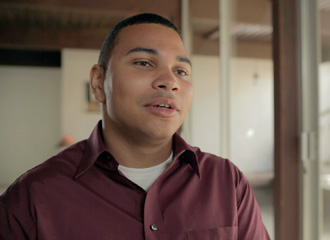Torn Between Worlds
5-minute read
Torn Between Worlds
5-minute read
Imagine you’re in combat with explosions all around. The sights, smells, noises, fear, and adrenaline surge are overwhelming, but you push through.
Except that you aren’t there at all. You’re in a shopping mall or your living room or driving a car, reliving a battle you fought years prior. It’s as real now as it was then, such that you feel like you’re in two worlds at once.
That is the terrifying and dangerous reality for Veterans who experience flashbacks of varying degrees. A flashback occurs when you feel as if you are re-experiencing a traumatic event. You might remember everything about the event as if you were going through it again, including vivid details. You might even have the same feelings or physical sensations that you had at the time of the event.
Flashbacks can be a symptom of a number of disorders, including anxiety, depression, eating disorders, schizophrenia, and PTSD. They can also be rooted in near-death experiences, homesickness, sexual trauma, or a substance use disorder. VA offers professional treatment, including group therapy or prolonged exposure therapy, that can help Veterans understand their thoughts, triggers, and reactions and teach them techniques for coping with stressful situations.
Chris, a U.S. Marine Corps Veteran who served in Iraq, awoke in a hospital with casts on both legs and one arm but no memory of what got him there.
“He had flashbacks so severe, he lost all of his memory,” explains his wife, Amanda. “All he remembered was Iraq, and so it was like he got back two days ago, to him.”
Four years after leaving the service, Chris had to reacclimate to civilian life again, and his PTSD went into overdrive. Amanda says Chris had a flashback accompanied by a seizure.
“He had the flashback and was acting out Iraq,” she says. “He thought he was holding a gun, he thought he was attacking people and we were just sitting in the living room having dinner. And he stood up and ran out of the house with no shoes on, no shirt on, and we had to go catch him and take him to the hospital and he didn’t know who I was. … He didn’t know our kids.”
Similarly, Hector — whose service in the U.S. Army, the Reserve, and the National Guard included 13 deployments — says what he saw in Kosovo in the late 1990s affected him into his civilian life.
Back home, Hector was physically in Minnesota, but his mind and his senses were engaged in a military operation overseas. This is what he saw:
Hector and a fellow Army Ranger were conducting an urban room-clearing operation. His friend had finished clearing his part and was waiting for Hector by the door. Hector finished and lined up behind his friend and pushed him out the door. But then it seemed like his friend just disappeared.
“My situation awareness was shot. ‘Where did he go?’” Hector recalls thinking before noticing “an enemy combatant with his pistol raised at me.”
Hector sensed that the person was scared, possibly green, but the Veteran was confused about the person’s hesitation. Then, he saw his toddler son through the window of the building the soldiers had just exited, and he heard his then-wife yelling.
“And I'm thinking, ‘What the heck is she doing here?’ Then I looked out in front of me, and there were lights everywhere. There were people yelling at me,” Hector says, adding that at some point, he became aware that he was outgunned, even though he saw only one combatant and had a pistol in each hand.
“I started realizing I'm not where I thought I was. Nothing is right anymore,” Hector explains. “And what part of it is real? Am I really somewhere else? I'm in between two realities.”
That’s what Hector remembers experiencing that day: facing off with a single armed combatant overseas. The reality, however, was that he was in Minnesota with his family, engaged in an armed standoff with eight police officers — a situation that could have netted him 45 years in prison, had the judge in his case not shown mercy.
After successful therapy through VA, Hector realized that his flashbacks were a normal response to his not-normal experiences in Kosovo and elsewhere.
Not all flashbacks are as severe as Hector’s, and some last only a second. They can be brought on by innocent events that call to mind a traumatic experience. Crowds, parades, fireworks, loud noises, movies, and TV shows are common triggers, but flashbacks can come from anywhere.
“A bus would backfire [and] I’d hit the concrete, tear up my knees, tear my pants up. People’d look at me like I was nuts and I’d get up embarrassed — big-time exaggerated startle response in there,” says Pete, whose service in the U.S. Army began the Tet Offensive, one of the biggest military campaigns of the war in Vietnam.
When he returned to the U.S., he tried to drown his memories with adrenaline and alcohol, but he had trouble sleeping and felt angry and edgy. And then there were the flashbacks.
“I’d wake up in the middle of the night and touch my chest, looking for the blood from the .51-caliber machine gun that was kicking dirt up around me back when we had that firefight,” Pete recalls.
If you are experiencing flashbacks or other intrusive memories, reach out for support.
“The most well-rounded warrior eventually understands that this is a part of what happens when you do what you’re going to do,” says Hector, who is now a therapist himself. “The warrior has to say, ‘I am courageous,’ and not let that stigma sit there saying, ‘I’m a wimp because of this.’ No, you’re going to be a better person because of this.”

